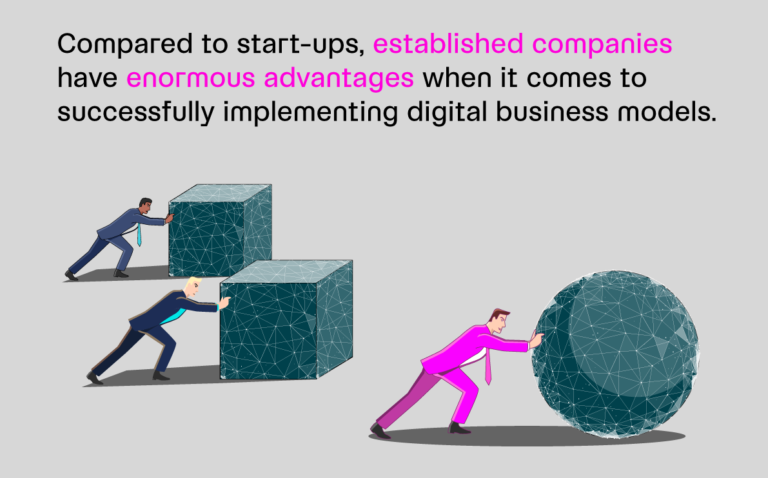
With innovation in areas like AI and Data Science happening at breakneck speed, digital platforms can leverage these technologies to solve their most common pain points. Let’s have a look at Technology Trends for Marketplaces in 2020.
Platforms throughout all industries whether its finance, real estate, or retail, no sector can escape the rising tide of disruption by new technologies and the constant need to innovate. Companies which don’t keep up with the major trends risk being usurped by more agile competitors as people set their signs on faster, easier, and more secure customer experiences. But understanding the key trends will help decision makers prepare for the disruption ahead and better separate the hype from the help.
Here are some of the biggest trends set to shake up marketplaces and digital platforms in 2020:
#1. AI as a service
Artificial Intelligence is one of the main drivers of the fourth industrial revolution. It’s ushered in an age when computers monitor complex physical processes and create virtual copies of the physical world to help businesses make important decisions. From sensors in brick-and-mortar stores to cutting-edge industrial control systems in smart factories, AI is rapidly shaping up to be a critical enabler of modern, digital business.
The problem is, designing and deploying AI-based systems in-house is prohibitively expensive for all but the largest enterprises, and even then, there are inherent limitations to in-house computing. As the amount of data generated by everyday business activities continues to skyrocket, the hardware requirements are similarly increasing. Aside from rising data storage needs, there’s also the fact that AI needs an enormous amount of compute power to be useful.
With the global economy becoming increasingly service-orientated, it’s not surprising that AI is largely skipping in-house development to instead being delivered as a cloud service. These online services let decision makers tap into the capabilities of AI to parse and derive value from huge data sets at a fraction of the cost. Add the rise of quantum computing into the mix, and there are also services like Google AI Quantum revolutionizing the sector.
How it will help digital platforms and marketplaces
Being one of the most transformative technologies of the decade, AI will help digital platforms and marketplaces in areas such as mitigating risk through automated fraud detection and risk analysis, offering a more customer centric search all the way to highly personalizing the offers across multiple devices. For many years, also matching customer and supplier has been a major application. Honestly, the results so far have been a bit disappointing, but 2020 might change this for good.
#2. Prescriptive Analytics and Data Science
Business analytics has always been about using the information available to facilitate smarter decision making and adds business value. But as data sets continue to grow exponentially, the field is only getting more complex. Prescriptive analytics is an emerging area dedicated to finding the most suitable course of action for a given situation. By contrast, predictive analytics aims to make educated guesses at future outcomes, while descriptive analytics is about deriving insights from past events.
Technology has become the Achilles’ heel of modern business. On one hand, it has opened up new opportunities for organizations to improve customer experiences and overcome many other challenges. On the other, the cost of technology downtime and missed opportunities to innovate are higher than ever.
Prescriptive analytics is the next stage in the evolution of business analytics. It helps decision makers derive greater value from predictive and descriptive insights by helping them explore the best options for achieving a desired goal. While it’s still an emerging and poorly defined area, prescriptive analytics is already on the way to transforming optimization, simulation, and decision-based analysis.
How it will help digital platforms and marketplaces
It’s one thing to set goals based on the insights gathered by predictive or descriptive analytics. But that doesn’t mean business leaders should lose sight of the journey itself. With prescriptive analytics, platforms can optimize a whole range of activities ranging from assessing strategic investments to resource optimization on a daily basis.
#3. 5G data networks
With all the talk of cloud computing and its persistent rise as a critical business tool, it’s easy to lose sight of the fact that most digital platforms become completely worthless the moment the internet connection drops. It’s also one of the reasons why the cost of unscheduled downtime is increasing all the time. Things are even harder for companies with field workers, in which poor internet coverage and high mobile data fees can stifle opportunities to grow.
For many businesses, the full benefits of cloud computing and decentralized decision making can only truly be realized once we have ubiquitous internet which, despite hype to the contrary, we don’t. Fortunately, the fifth generation of mobile communications is set to change the game, and while it won’t happen overnight, the rollout of super-fast and more reliable mobile data connections is already well underway.
Aside from the consumer benefits, such as the ability to stream movies anywhere, businesses too can take advantage of 5G data networking. With more bandwidth available and coverage greatly improved, it will be possible for sensors, robots, and autonomous vehicles to collect and transmit more data no matter where they are. This will inevitably lead to advances in the Internet of Things (IoT).
How it will help digital platforms and marketplaces
Being in business in today’s connected world is about being accessible. 5G networking will especially help platforms offering services with high computational requirements to more remote locations.
#4. Extended reality
By now, most of us are familiar with terms like virtual reality and augmented reality (VR and AR). A catch-all term for these technologies is extended reality (XR), which broadly includes all the systems designed to provide a more immersive digital experiences.
The business implications of XR are huge, and not just in the entertainment sector. One of the most important areas is healthcare, where trainee surgeons can practice in virtual operations. In real estate, agents can provide immersive walkthroughs of properties to their clients. Schools can empower distance learning and enable virtual field trips. Manufacturers can improve safety and mitigate human error by having employees use AR headsets with heads-up displays providing real-time information. The list goes on.
While still best known as a consumer-grade technology, we can expect AI and VR to transform many industry sectors in the years ahead as organizations start realizing the benefits they bring to employee training and customer interactions.
How it will help digital platforms and marketplaces
When it comes to buying physical products, there’s still no substitute for brick-and-mortar stores for customers who want to experience a product before they buy. But XR brings the digital marketplace a step closer to real-world shopping experiences.
Venture Leap helps entrepreneurial teams build and launch their digital products with expert guidance from the idea stage to the working product. Contact us today to learn more, or find us at this year’s Marketplace Conference on November 19 in Berlin.




